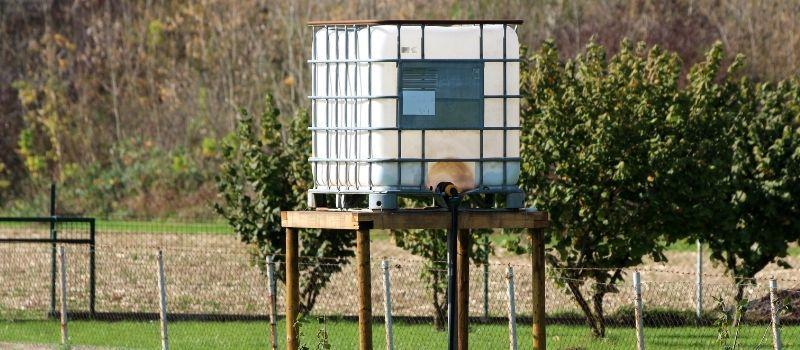What are grade A and grade B reconditioned IBC?
IBC’s can be complicated. Which one should you buy? Brand new or reconditioned? To add further confusion, we sell what are called grade A reconditioned IBCs and grade B reconditioned IBCs. This can cause extra confusion when it comes to knowing what these are and what they are suitable for.
To clear this up, we thought we’d explain to you what the two are and how they can potentially save you a few pennies.
Reconditioned IBC
When IBCs aren’t being used for products that are consumed by humans or animals, reconditioned IBC’s offer a cost-effective solution to storage.
Despite being reconditioned, you can be sure they are still manufactured from high-density polyethylene plastic and come with a fully galvanised outer cage. You may find the plastic or outer cage has imperfections or signs of rust.
Grade A and Grade B IBCs are both reconditioned IBC’s that are available on our website. They offer a great, cost-effective alternative when the IBC doesn’t need to be in brand-new condition.
Grade A Reconditioned IBC
Our grade A reconditioned IBCs are high quality and deemed to be in close to ‘new’ condition. Before we sell a Grade A IBC they are professionally cleaned to an extremely high standard to ensure the interior is clean and there are a few imperfections or signs of rust. The IBC is leak tested and if required, lids, valves or gaskets are replaced.
As these could have contained any type of liquid before, we don’t advise these are used for products that are consumed by animals and humans or used by the pharmaceutical industry.
Grade B Reconditioned IBC
Our grade B IBCs are in a slightly more used compared to the grade A IBCs we offer. They are likely to have some imperfections to the frame and possible discolouration of the inner bottle. These are professionally cleaned, but depending on the previous contents there may still be residue remaining.
As with the grade A IBC’s as they could have contained any type of liquid before, we don’t advise these are used for products that are consumed by animals and humans or used by the pharmaceutical industry.
Due to the condition of the IBC, grade B IBCs are our cheapest option, but they offer a highly costly-effective solution to liquid storage in certain situations.
Which type of IBC is best for you?
Everyone’s IBC needs are different and there are many more things to consider than just the condition of the IBCs.
If you are looking for someone to store waste water, then grade A or B are the best option. Grade B IBCs aren’t leak tested which means you could leak waste water into the surrounding area, make sure you consider this beforehand. Whereas grade A IBCs have been tested for leaks which will give you peace of mind, it won’t leak out waste water.
You will typically find grade A and grade B reconditioned IBCs used on constructions sites, warehouses or factories as they are ideal for storing waste water. As grade A IBCs have been tested for leaks, these are commonly used as the user can be assured they won’t leak onto the surroundings area.
Grade B reconditioned IBCs are a handy alternative for someone who doesn’t need to worry about leakage. This is particularly prominent on building sites where leaks on the site may not be an issue.
When should you replace your IBC?
If cared for and maintained correctly, your IBC tank can have a long lifespan. You should check your IBC monthly to ensure the inner plastic is safe to use and that there are no leaks.
If you do notice leaks or spillages from your IBC tank, it is time to replace the IBC as you are risking leaking potentially harmful chemicals into the surrounding area.
We advise, if you use your IBC tank for potentially hazardous chemicals, you shouldn’t then use this for liquids that are to be consumed by humans or animals. If the IBC is contaminated, there is also a risk of Legionella growth within the IBC. If you wish to do this, then please replace your IBC tank with a new IBC tank.
We hope this has answered your IBC reconditioned questions and has helped you decide what IBC you need.
If you’d like to find out more about the IBCs we have available, please contact our sales team on 01777 858009 or email sales@kingfisherdirect.co.uk.

